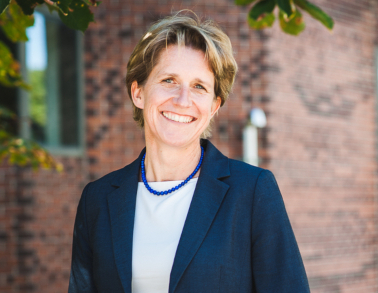McGill News, Syvain Comeau
Approximately a year after the legalization of marijuana in Canada last fall, the new McGill Research Centre for Cannabis is poised to examine the role that legal cannabis will be playing in our society on many fronts. The trans-disciplinary centre, a partnership between six McGill faculties (Medicine, Agricultural and Environmental Sciences, Law, Science, Education, and Management) and the McGill University Health Centre Research Institute (RI-MUHC), has already initiated a number of research projects in fundamental and applied science.
In a recent interview with the McGill News, MRCC director Carolyn Baglole, an associate professor of medicine, discussed the ambition and scope of the centre.
It’s not the first, but it is one of the most comprehensive; this centre will be going from plants to people to policy. That means we will focus on three research axes. [Researchers in] agriculture and plant sciences will conduct fundamental studies on the plant itself – crop management, for example. Our biomedical research axis will encompass both pre-clinical and clinical studies – for example, looking at pain management, and sleep. We also have a socioeconomics and law axis, which focuses on a broad range of financial, legal, policy, regulatory and educational matters emerging from legalization.
Issues surrounding legality and social stigma have hampered research. As a result, there is so much information, on all fronts, that we lack. Legalization has really opened the floodgates for cannabis research.
Yes, we need to understand the potential medicinal applications. We want to understand the growth of the plant, how that affects its chemicals and how they work to alleviate disease symptoms.
Yes, that is really about being open in our scientific quest. We want to let the data and the science unfold, learning what that story is telling us. Ultimately, the science will inform us as to what is true and what is not.
We can learn from each other. For example, I am involved in the biomedical axis; our colleagues from agriculture and plant sciences may be able to identify a strain of cannabis that produces chemicals which can then be applied in a biomedical setting.
Trans-disciplinary research is really about being comprehensive in our research approach. We combine one person’s area of expertise with that of another, in order to understand a subject as a whole. As compared to isolated projects, we gain a more fundamental understanding.
We also spoke to Dean of Agricultural and Environmental Sciences Anja Geitmann (left) about her Faculty’s involvement in the new centre.

Please explain your role in the new centre.
The idea came largely from our Faculty, because we are also setting up an academic curriculum on cannabis cultivation and extraction. And before legalization, we already had researchers working in this area.
We’re trying to understand how cannabis growth is influenced by environmental conditions, and how someone could cultivate it for a specific application, such as controlling their nausea.
We’re also investigating optimal indoor growing methods, targeted for the medicinal market, to ensure a safe product.
Our third approach looks at how to control pathogens which commonly afflict cannabis, such as fungal diseases.
Our Faculty started this research just two years ago. That activity is ramping up now; the funding situation is rapidly improving because industry is interested in collaborating on research projects. Also, we are in the process of obtaining a license to grow the plant, which was very difficult to do in the past. Eventually, we will be able to grow our own research materials on campus.
Coordination. For a potential corporate partner, who hears about this research at McGill, we now have a one-stop shop whom they can call. There is also collaboration. Research projects are increasingly interdisciplinary. For example, if we want to investigate the use of cannabanoids for dermatological applications, we need experts in dermatology, extraction of cannabanoids, and optimal plant breeding methods. So you need a plant scientist, a chemist and a medical scientist. The centre has the purpose of getting people together, talking, exchanging and finding collaborators.
September 17 2019

